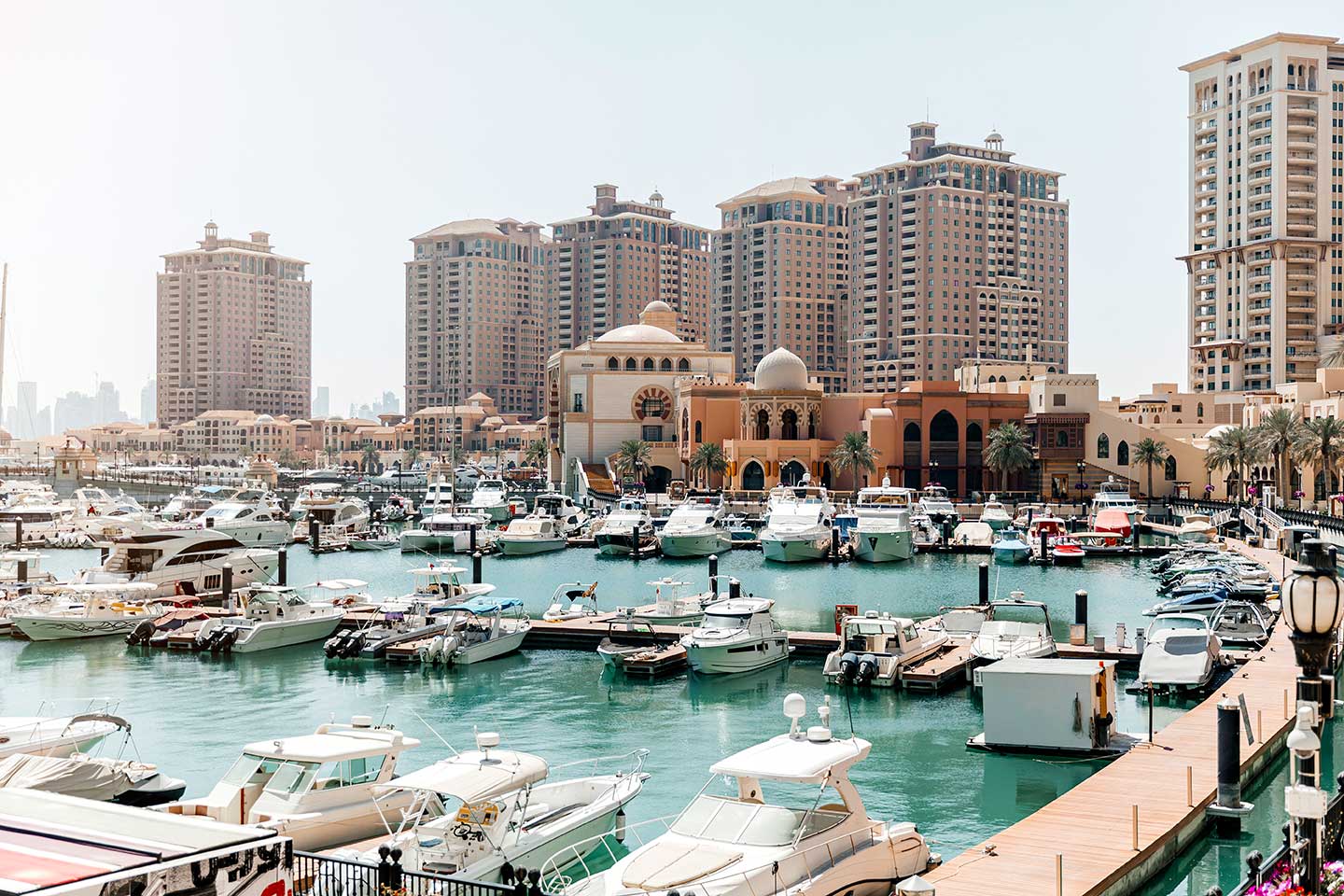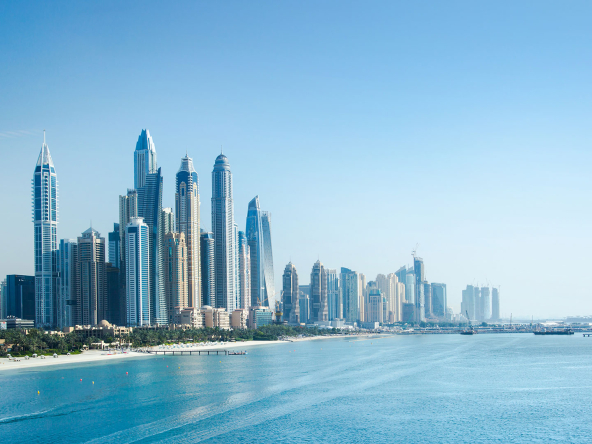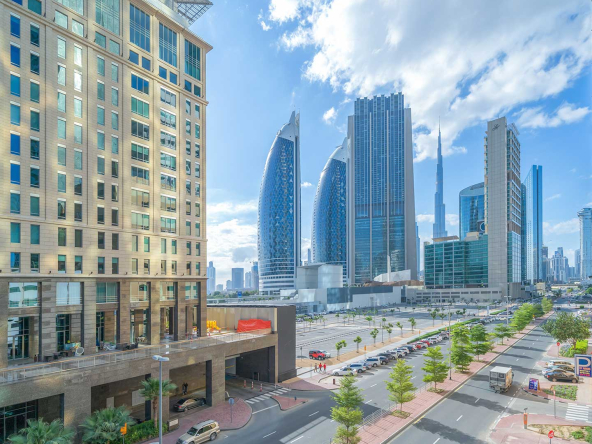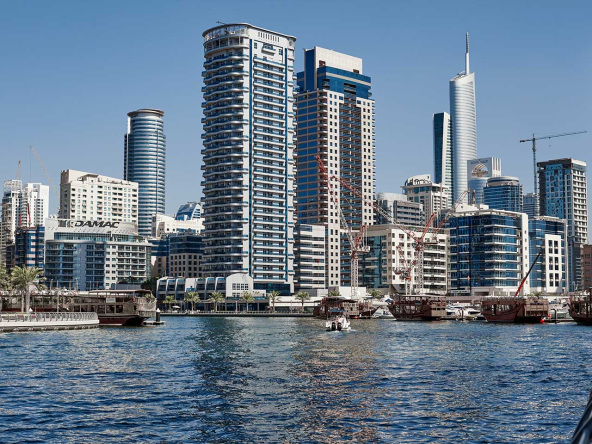Dubai’s real estate market is a dynamic and multifaceted landscape that offers a wealth of opportunities for investors, homeowners, and real estate professionals. Understanding the market requires a deep dive into its unique characteristics, trends, and regulatory framework. Here’s a comprehensive guide to help you navigate and understand the real estate market in Dubai.
1. Overview of Dubai’s Real Estate Market
Historical Growth:
- Over the past two decades, Dubai has transformed from a desert city into a global metropolis, with significant investment in infrastructure, tourism, and real estate.
- Major developments like Palm Jumeirah, Burj Khalifa, and the Dubai Marina have put the city on the global map.
Market Segmentation:
- Residential: Includes apartments, villas, and townhouses catering to various income levels.
- Commercial: Office spaces, retail outlets, and industrial properties.
- Hospitality: Hotels, serviced apartments, and vacation homes.
- Mixed-Use Developments: Integrated communities that combine residential, commercial, and leisure facilities.
2. Current Market Trends
Post-Pandemic Recovery:
- The COVID-19 pandemic initially caused a slowdown, but the market has shown resilience with a robust recovery driven by government initiatives and Expo 2020 Dubai.
- Increased demand for larger living spaces and villas as people prioritize comfort and remote work capabilities.
Price Trends:
- Prime Locations: Areas like Downtown Dubai, Dubai Marina, and Palm Jumeirah have seen price increases due to high demand.
- Emerging Areas: Locations like Dubai South and Dubai Creek Harbour offer more affordable options and are gaining popularity.
Rental Yields:
- Dubai offers attractive rental yields, particularly in high-demand areas. Average yields range from 5% to 8%, which is higher than many global cities.
3. Key Areas to Invest
Downtown Dubai:
- Home to iconic landmarks like the Burj Khalifa and Dubai Mall, it’s a prime location for luxury living and investment.
Dubai Marina:
- Known for its waterfront living, modern skyscrapers, and vibrant nightlife, making it a favorite among expatriates.
Palm Jumeirah:
- Offers exclusive villas and apartments with stunning views and private beach access, attracting high-net-worth individuals.
Business Bay:
- A rapidly developing area with a mix of residential and commercial properties, ideal for business professionals.
Dubai Creek Harbour:
- An emerging area with ambitious projects like the Dubai Creek Tower, poised to become a new city hub.
4. Legal and Regulatory Framework
Ownership Laws:
- Freehold Areas: Non-UAE nationals can buy properties in designated freehold areas, offering full ownership rights.
- Leasehold Areas: Properties in leasehold areas can be leased for up to 99 years.
Regulatory Bodies:
- RERA (Real Estate Regulatory Authority): Ensures transparency and protects investors’ rights.
- Dubai Land Department (DLD): Handles property registration, transactions, and legal matters.
Investor Visas:
- Property investors can obtain residency visas, with various tiers based on the investment amount.
- Long-term residency options (Golden Visas) are available for significant investors and property owners.
5. Financing and Mortgages
Mortgage Options:
- Local banks offer various mortgage products for residents and non-residents, including fixed-rate and variable-rate mortgages.
- Expatriates can typically borrow up to 75-80% of the property value, while UAE nationals may get up to 85%.
Interest Rates:
- Competitive mortgage rates, with banks offering attractive deals to attract investors.
Payment Plans:
- Many developers offer flexible payment plans, especially for off-plan properties, making it easier for buyers to manage finances.
6. Investment Opportunities and Risks
Why Invest:
- Tax-Free Income: No property taxes or capital gains tax.
- High Rental Yields: Consistently high returns, especially in popular areas.
- Strong Infrastructure: World-class infrastructure and amenities attract both residents and tourists.
Risks:
- Market Volatility: Prices can fluctuate, requiring thorough research and risk assessment.
- Maintenance Costs: Be aware of maintenance fees and service charges, which can vary depending on the property and location.
7. Tips for Buyers and Sellers
For Buyers:
- Research Thoroughly: Understand the market, compare prices, and evaluate different areas.
- Inspect Properties: Conduct a thorough inspection before purchase.
- Negotiate: There is often room for negotiation, so don’t hesitate to make offers below the asking price.
For Sellers:
- Set the Right Price: Price your property competitively based on market conditions.
- Stage Your Home: Present your property in the best possible light to attract buyers.
- Work with Agents: Utilize experienced real estate agents who know the Dubai market well.
—————
Understanding the real estate market in Dubai involves keeping abreast of market trends, regulatory changes, and investment opportunities. Whether you are buying, selling, or investing, a comprehensive knowledge of these factors will help you make informed decisions and maximize your returns.




